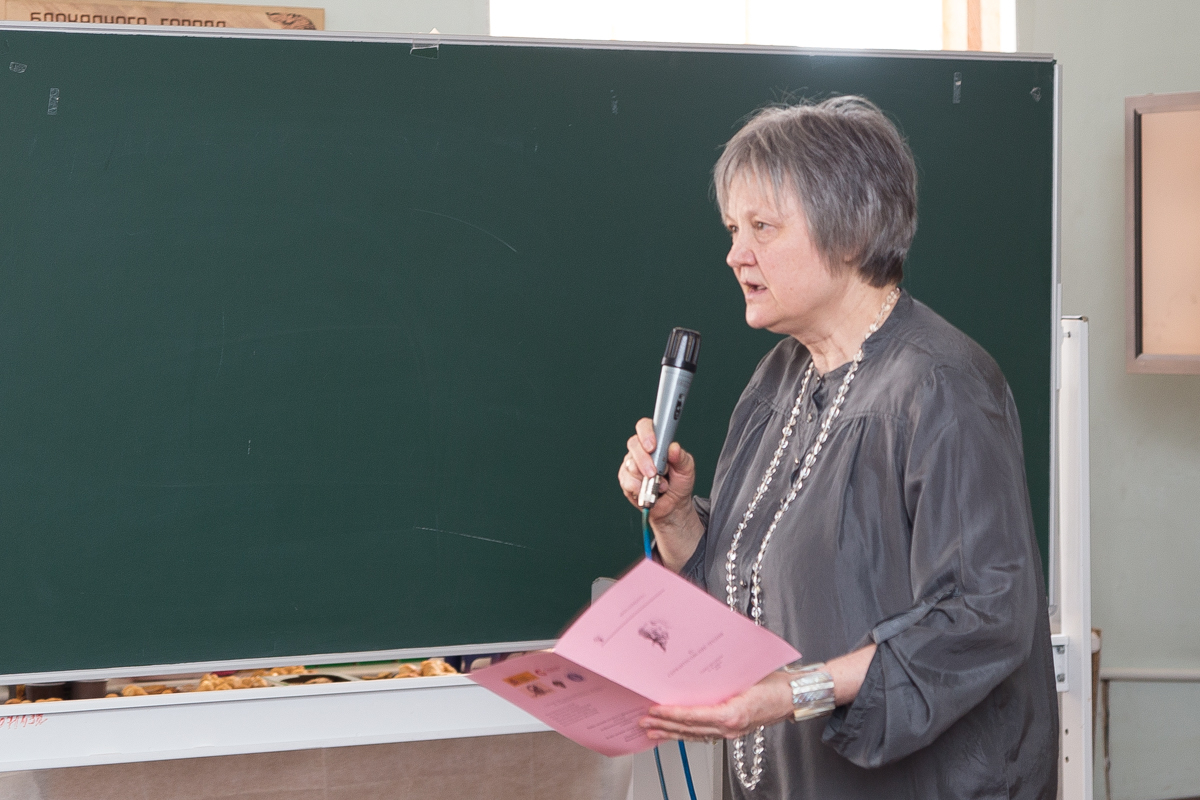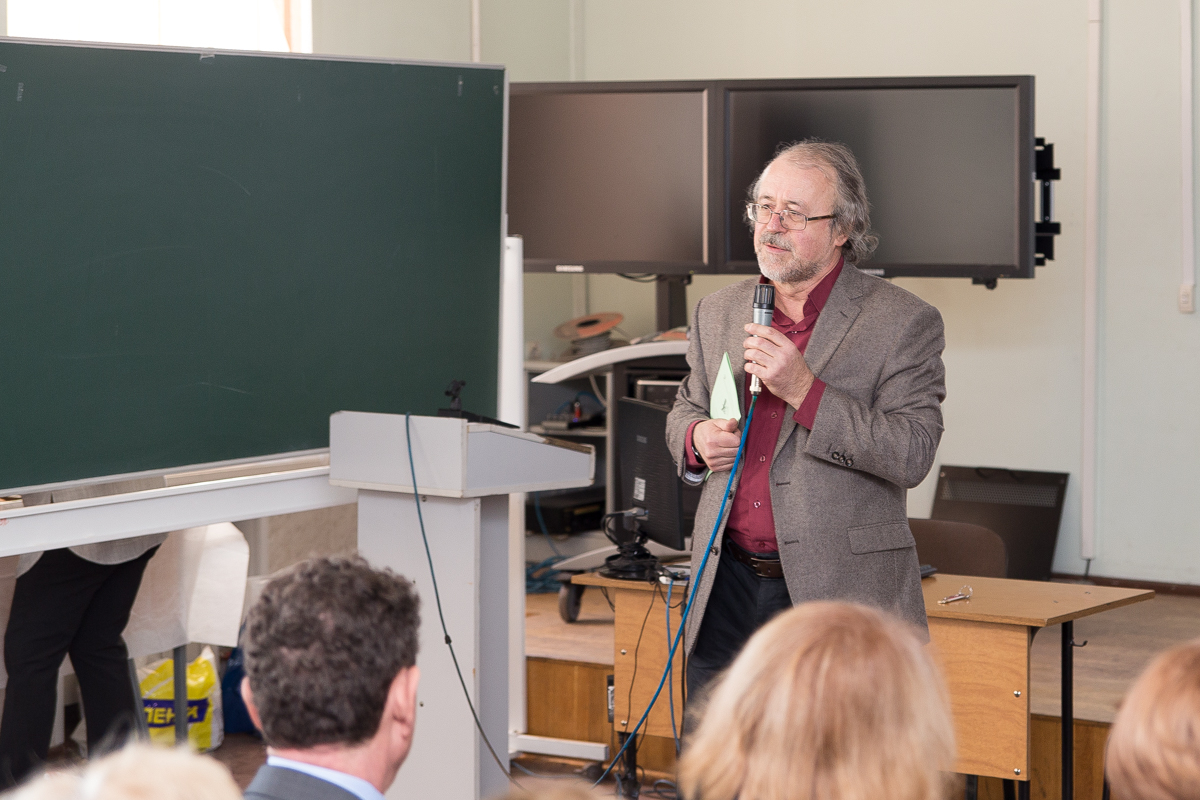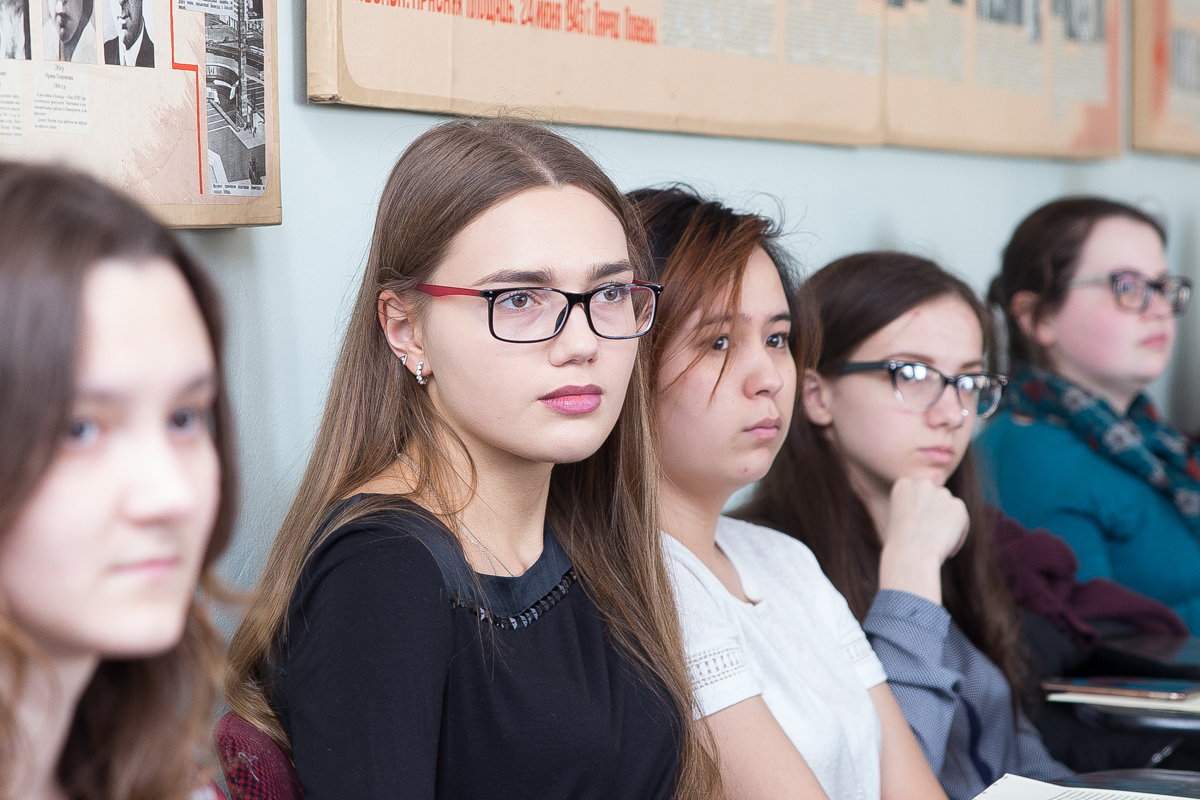SPbU’s scholars in Spanish studies in search for lost archives
St Petersburg University and Institute of Russian Literature of the Russian Academy of Sciences have held the XL Cervantes Readings to share the research results on the lost archives of the Spanish studies.
Alvaro de La Riva Guzman De Frutos, Cultural Adviser at the Embassy of Spain to Russian Federation, greeted the participants with his welcoming speech and said that the SPbU’s scholars in Spanish studies have been making significant contribution, both scientific and cultural, into Russia-Spain collaboration. The University prepares new generations of scholars in Spanish studies for global community, says the Advisor.
Cervantes has been popular for centuries and we all need his heritage, especially today when culture cements our diplomatic ties.
Alvaro de La Riva Guzman De Frutos, Cultural Adviser at the Embassy of Spain to Russian Federation
The Cervantes Readings were opened by the research director of the Institute of Russian Literature (Pushkin House), corresponding member of the RAS, SPbU Professor Vsevolod Bagno. He delivered a report on “This is how Cervantes emerged in slavery”. An author and a character imprisoned”. By referring to Solzhenitsyn in the title of the report, he implies the Russian and Spanish writers are alike in the meta-literal context that shows dialectics of literal freedom and slavery.
Lost professor’s archive
Ilia Mikhailov, a master student, and Olga Svetlakova, Associate Professor of the Department of Foreign Literature, told us through a philological investigation into the lost manuscripts of the Russian translation of the Medieval Castilian collection El Conde Lucanor by Don Juan Manuel. Presumably, the translator is Professor of Petersburg University Dmitrii Petrov.
Dmitrii Petrov (1872–1925) is a philologist in the Roman studies and translator, Professor of Petersburg University (1908), corresponding member of the Academy of Sciences. He had a very broad scope of research interests: from the Arab Invasion of Spain to Baryon and Manzoni. Author of the book about Lope de Vega (1562–1635). Among his students were famous scholars in literature studies including Nikolay Gumilev, Osip Mandelshtam, Viktor Shklovskii, Lozinskiis and many others who were the fathers of the Russian Silver Age. Professor Popov is often referred to as the father of the Spanish studies in Russia.
Olga Svetlakova put us on the picture of who Professor Petrov was and what role he played in the life of the University by citing Konstantin Mochulskii’s letter to his friend who was the-then student in philology Viktor Zhirmunskii that was written on the 350th anniversary of Lope de Vega that was initiated by Professor Petrov and celebrated at the University in 1912. It says that during the event Professor Petrov was incredibly strict with the misbehaving students: Gumilev, Mandelshtam, and Georgii Lozinskii.
For quite a long time, scholars thought that Professor Petrov was the author of the Russian translation of El Conde Lucanor that was published posthumously (36 years after he had died). Yet no evidence exists on his authorship except his name on the cover page of the Russian translation of 1961 and a short note in Vestnik of LSU in 1974. The location of Petrov’s archive is still unknown: some think it is in Paris, while others believe that it burnt during the Siege of Leningrad. Ilia Mikhailov decided to initiate his own investigation and search for Professor Popov’s archive.
Since 2009, SPbU has been restoring the literary heritage of the University. As many as 1.2 mln publications, including unique old manuscripts, have been restored so far. Among them are The Dictionary of Pallas (1787), Sofia chronicles (1821), Hymns of Callimachus (1823), The Novellae Constitutiones (1821), Ancient official documents and petitions collected in Perm region (1821).
Mathematics, especially the methods of author's invariants, saved the case. The method statistically reveals the auxiliary parts of speech in the attributed text (an article by Professor Petrov) and the text in question (the Russian translation of El Conde Lucanor). The difference was less than 2% and it means that both texts belong to one author.
This year, the Cervantes Readings celebrate their 40th anniversary. The event was visited by SPbU, Hermitage, RNL, Autonomous University of Madrid, Institute of Russian Literature, MGIMO, and others.
Ilia Mikhailov made painstaking enquiries into the archives in St Petersburg (the department of manuscripts in the Pushkin House, department of manuscripts of the RAS’s archive, TSGALI, SPBU’s archive). Yet no evidence of Professor Petrov’s archive has been found, neither has been mentioned the Russian translation of El Conde Lucanor in any sources among the 60 sources found by the young researcher (mostly the letters and personal catalogues).
Still some evidence can be restored from the letters to Academician Sergei Oldenburg. In 1925, Professor Petrov, shortly before his death, wrote: “When I die, I kindly ask you to give my personal family archive and manuscripts to the Academy”. Later, in his official letter, he asked his sister Vera Petrova to keep the library. The same year, Professor Petrov’s library, that had about 10 thousand books on the history of the Roman literature and history of culture, was managed by the department of foreign literature of the Academy of Sciences, yet it was still located at the Petrovs’ flat in 12th Line of the Vasilievskii Ostrov.
In 1930, Vera Petrova, a lecturer at LSU, was anonymously reported to be arrested for a case on “creating a monarchial society in the flat” and sentenced for three years of internal exile. The “monarchial society” was a French speaking club that was located in the Petrovs’ flat as Vera Petrova, who was 70 years old then, was physically weak, as we can find from her letters to Ekaterina Peshkova.
Vera Petrova took care of her brothers books and published some of his translations of Lope de Vega at her own expenses. Some famous scientists and scholars were frequent visitors of the library, in particular Professor Konstantin Derzhavin. It makes some grounds to assume that the library could “move” abroad following the students of Professor Petrov as his translations were posthumously translated in Paris.
Those who now live in the flat in the 12th Line are not available. There are no heirs of the Petrovs. The location of the main part of the library is still unknown.
“The Duke of the scholars in Arab Studies in Russia” and a legend about the archive of Toledo Mozarabs
Oksana Tikhonova, a lecturer at the Department of Roman Philology at SPbU, told us about another famous linguist and Professor of LSU Ignatii Krachkovskii.
Ignatii Krachkovskii (1883–1951) is a scholar in Arab studies, Academician, Professor of Petersburg University and LSU. One of the founders of the Arab studies in Russia, member of the Imperial Orthodox Society. One of the authors of the first edition of Encyclopedia of Islam.
Professor Krachkovskii played a great role in the Spanish Arab studies: the works on the Arab language and culture by Spanish scholars had long been neglected by the world community. Professor Krachkovskii and his colleagues published a great number of books on the culture of the Al-Andalus, or Muslim Spain in 711–1492. For his contribution into science, he was referred to as the “Duke of the scholars in Arab studies in Russia” on the pages of the publications by the Royal Academy of History of Spain.
In his notes, he mentioned an archive of the Toledo Mozarabs. The archive was decoded, translated from Arab into Spanish and published in three volumes by Anhel Gonzales Palencia in 1926-1930 (the fourth volume contains comments and notes of the translator). It was this edition that Professor Krachkovskii got with the help of his peers from Spain. The four-volume edition contains 1,175 documents of 1083-1315 from the archive of Mozarabs that were found in the Primate Cathedral of Saint Mary of Toledo.
Mozarabs are the Christians who lived in the Iberian Peninsula under the Muslim rule from 711 to 1492. The Toledo Mozarabs are a Christian community that spoke Arab and lived in Toledo at the centre of the Iberian Peninsula in 12-13 centuries.
The archive describes both the-then Christian population in Toledo and their attitude towards the Arab invaders. The documents of the Toledo archive primarily tell about the land sales that belonged to the Cathedral. All letters, including those signed by the bishops, begin with the words to Allah and contain the Arab variants of the Christian concepts: ‘imam’ (a priest); ‘emir’, ‘sultan’, ‘malik’ (a king). According to the lexical analysis, as Palencia reveals, for two centuries the Mozarabs who were Christians by religion freely spoke Arab.
In 1920s, the historians in Spain thought that Al-Andalus, or Muslim Spain, is a territory occupied by Arab where the Christians were severely persecuted. In the comments, Palencia concluded: «If the Islam rule in Toledo didn’t destroy the Christian churches; if, as Simone says, they still had the cathedra and bishops… was there any persecution? If, after the conquest of Toledo by Alfonso VI of León and Castile, the Christians still had the Arab names and used the Arab language in trade and to write the wills, is there any evidence that we can talk about they had been forced by tyrants? <...> We don’t have to substitute their love to the Arab language by politics”.
The meetings during the first day were also visited by SPbU’s Associate Professor Irina Khokhlova, Department of Roman Philology, who delivered a report on Interpretations of Luís Vaz de Camões in the Spanish literature in 16-17th centuries; Irina Ershova from RSUH presented a report on the philosophy of fencing in the treatise on the fencing by Jerónimo Sánchez de Carranza; Maria Nadiarnykh from Institute of Russian Literature of the RAS who compares a category of ‘inventiveness’ in Don Quixote by Cervantes and in the Spanish literature of the Golden Age; Natalia Pastushkova from RSUH told about the interpretations of the concept of courtly love in Castile, and Kirill Korkonosenko from the Institute of Russian Literature of the RAS had a report on Troubadours Macías and Fernán Pérez de Guzmán: Russian fate about early Russian interpretations of the Castilian literature.
The second day of the conference was held in the Pushkin House and mostly focused on political and cultural diplomacy, and arts studies. The outstanding scholars from Moscow, Madrid, and St Petersburg discussed a wide range of current issues of the Spanish studies: from how seriously the Spanish Ambassador was perceived in terms of the Decembrist revolt in Nikolay’s Russia and sociocultural aspects of the Spanish paintings to nuances of attribution of pieces of arts and jewelry.




